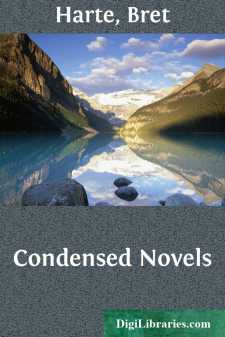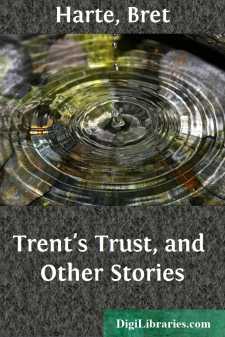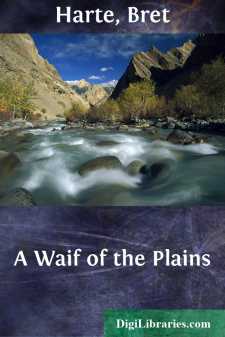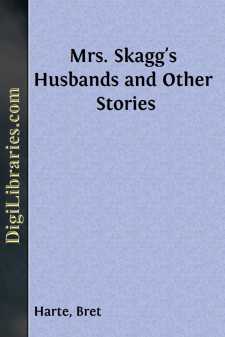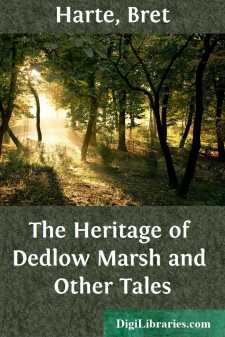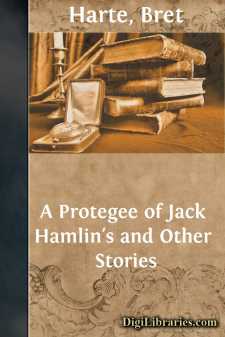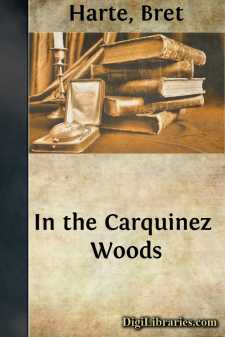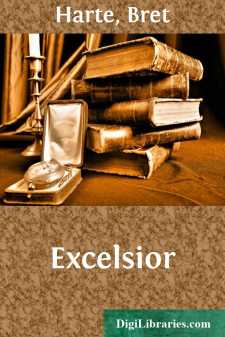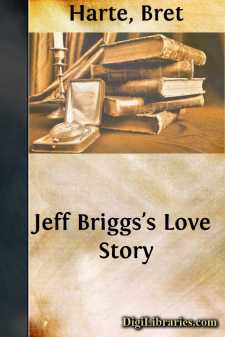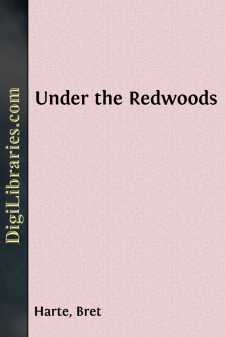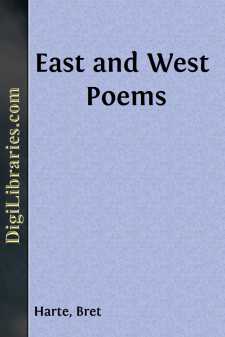Categories
- Antiques & Collectibles 13
- Architecture 36
- Art 48
- Bibles 22
- Biography & Autobiography 813
- Body, Mind & Spirit 142
- Business & Economics 28
- Children's Books 17
- Children's Fiction 14
- Computers 4
- Cooking 94
- Crafts & Hobbies 4
- Drama 346
- Education 46
- Family & Relationships 57
- Fiction 11829
- Games 19
- Gardening 17
- Health & Fitness 34
- History 1377
- House & Home 1
- Humor 147
- Juvenile Fiction 1873
- Juvenile Nonfiction 202
- Language Arts & Disciplines 88
- Law 16
- Literary Collections 686
- Literary Criticism 179
- Mathematics 13
- Medical 41
- Music 40
- Nature 179
- Non-Classifiable 1768
- Performing Arts 7
- Periodicals 1453
- Philosophy 64
- Photography 2
- Poetry 896
- Political Science 203
- Psychology 42
- Reference 154
- Religion 513
- Science 126
- Self-Help 84
- Social Science 81
- Sports & Recreation 34
- Study Aids 3
- Technology & Engineering 59
- Transportation 23
- Travel 463
- True Crime 29
Condensed Novels
by: Bret Harte
Description:
Excerpt
CHAPTER I.
The Dodds were dead. For twenty year they had slept under the green graves of Kittery churchyard. The townfolk still spoke of them kindly. The keeper of the alehouse, where David had smoked his pipe, regretted him regularly, and Mistress Kitty, Mrs. Dodd's maid, whose trim figure always looked well in her mistress's gowns, was inconsolable. The Hardins were in America. Raby was aristocratically gouty; Mrs. Raby, religious. Briefly, then, we have disposed of—
1. Mr. and Mrs. Dodd (dead).
2. Mr. and Mrs. Hardin (translated).
3. Raby, baron et femme. (Yet I don't know about the former; he came of a long-lived family, and the gout is an uncertain disease.)
We have active at the present writing (place aux dames)—
1. Lady Caroline Coventry, niece of Sir Frederick.
2. Faraday Huxley Little, son of Henry and Grace Little, deceased.
Sequitur to the above, A HERO AND HEROINE.
On the death of his parents, Faraday Little was taken to Raby Hall. In accepting his guardianship, Mr. Raby struggled stoutly against two prejudices: Faraday was plain-looking and sceptical.
"Handsome is as handsome does, sweetheart," pleaded Jael, interceding for the orphan with arms that were still beautiful. "Dear knows, it is not his fault if he does not look like—his father," she added with a great gulp. Jael was a woman, and vindicated her womanhood by never entirely forgiving a former rival.
"It's not that alone, madam," screamed Raby, "but, d—m it, the little rascal's a scientist,—an atheist, a radical, a scoffer! Disbelieves in the Bible, ma'am; is full of this Darwinian stuff about natural selection and descent. Descent, forsooth! In my day, madam, gentlemen were content to trace their ancestors back to gentlemen, and not to—monkeys!"
"Dear heart, the boy is clever," urged Jael.
"Clever!" roared Raby; "what does a gentleman want with cleverness?"
CHAPTER III.
Young Little WAS clever. At seven he had constructed a telescope; at nine, a flying-machine. At ten he saved a valuable life.
Norwood Park was the adjacent estate,—a lordly domain dotted with red deer and black trunks, but scrupulously kept with gravelled roads as hard and blue as steel. There Little was strolling one summer morning, meditating on a new top with concealed springs. At a little distance before him he saw the flutter of lace and ribbons. A young lady, a very young lady,—say of seven summers,—tricked out in the crying abominations of the present fashion, stood beside a low bush. Her nursery-maid was not present, possibly owing to the fact that John the footman was also absent.
Suddenly Little came towards her. "Excuse me, but do you know what those berries are?" He was pointing to the low bush filled with dark clusters of shining—suspiciously shining—fruit.
"Certainly; they are blueberries."
"Pardon me; you are mistaken. They belong to quite another family."
Miss Impudence drew herself up to her full height (exactly three feet nine and a half inches), and, curling an eight of an inch of scarlet lip, said, scornfully....


